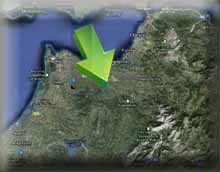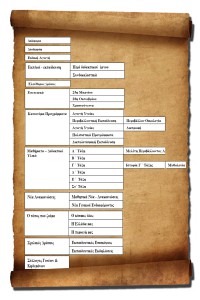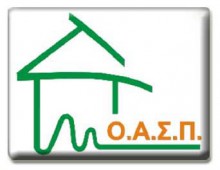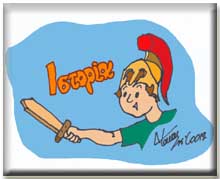Let’s have a look at the English Tenses 🙂
Present Simple
Examples
- John lives in Paris.
- They play tennis every day.
- You are really generous.
- The birthday party starts at 19:00 pm.
Basic form: Subject + Verb (present form)
Use
- Facts, generalisations and universal truths
- Habits and routines
- Permanent situations
- Events that are certain to happen
- Arrangements that we can’t change (e.g. timetables, schedules, official meetings)
- State verbs (e.g. be, have, suppose, know, believe, own)
- Narrations, innstructions or commentaries
More Examples:
- The Earth goes around the Sun. (Universal Truth, Fact)
- London is the capital city of England. (Fact)
- We leave for work at 7:30 AM every morning. (Routine)
- Pinocchio usually tells lies. (Tendency)
- I live in Greece. (Permanent Situation)
- Winter starts on December 21. (Events certain to happen)
- I like football. (State verbs)
- The bus leaves at 10 pm (Arrangement)
- Paul Johnston runs with the ball and gets the ball stolen off him by Mike Brown, he passes it to Bristol Rovers answer to Cliff Richard who passes it to Matt Dark. (Sport commentary)
Adverbs of frequency (επιρρήματα συχνότητας)
The Present Simple is often used with the frequency verbs:
- always
- frequently/often
- usually
- seldom/rarely
- nowadays
- never
- every week/year
- sometimes/occasionally
- from time to time
- every now and then
A few examples how to use them in sentences:
- I often go to the shopping centre at the weekends.
- I always eat lunch after school.
- Liam is usually late at school
Positive Sentences
| Who? | Form of verb |
Examples |
| I | verb | I run every day. |
| He/She/It | verb + s | He runs every day. She runs every day. It runs every day. |
| You | verb | You run every day. |
| We | verb | We run every day. |
| They | verb | They run every day. |
Negative Sentences
| Who? | Form of verb |
Examples | |
| I | do not / don’t | verb | I don’t run every day. |
| He/She/It | does not / doesn’t | He does not run every day. He doesn’t run every day. She does not run every day. She doesn’t run every day. It does not run every day. It doesn’t run every day. |
|
| You | do not / don’t | You do not run every day. You don’t run every day. |
|
| We | do not / don’t | We run every day. | |
| They | do not / don’t | They run every day |
Question Sentences
| Who? | Form of verb |
Examples | |
| Do | I | verb | Do I run every day? |
| Does | he/she/it | Does he run every day? Does she run every day? Does it run every day? |
|
| Do | you | Do you run every day? | |
| Do | we | Do we run every day? | |
| Do | they | Do they run every day? |
Verbs ending with:
“s”, “ch”, “sh”, “x” or “z”
| miss | => | miss + es | => | misses |
| kiss | => | kiss + es | => | kisses |
| watch | => | watch + es | => | watches |
| teach | => | teach + es | => | teaches |
| wash | => | wash + es | => | washes |
| push | => | push + es | => | pushes |
| mix | => | mix + es | => | mixes |
| fix | => | fix + es | => | fixes |
Let’s watch the following videos 🙂
Η διδάσκουσα Αγγλικής Γλώσσας
Κεφαλοπούλου Γεωργία



















































































